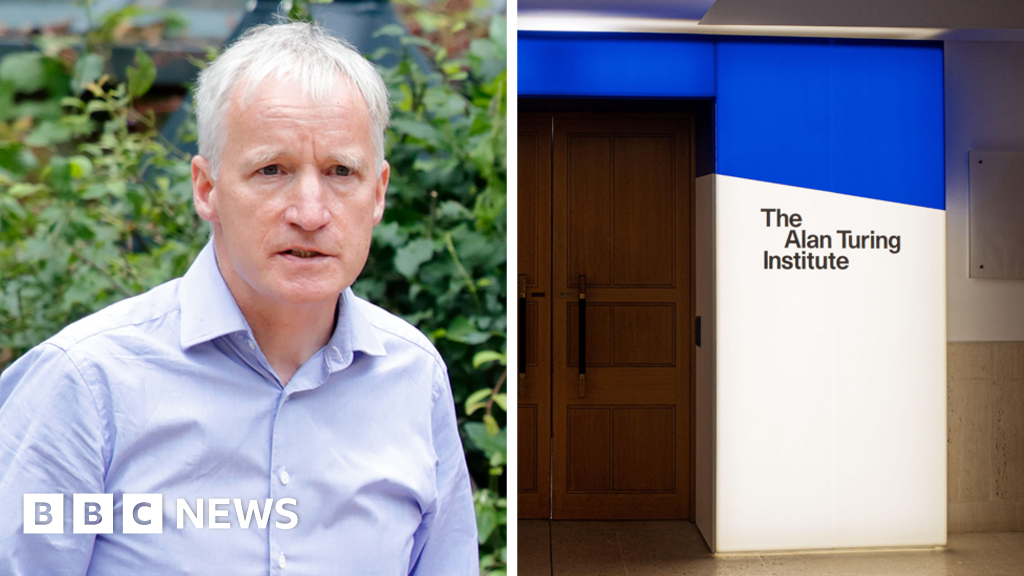Turing AI Institute boss denies accusations of ‘toxic internal culture’

The Alan Turing Institute Chair has told the BBC there is “no substance” to a number of serious accusations which rocked the organisation in the summer.
In August, whistleblowers accused the charity’s leadership of misusing public funds, overseeing a “toxic internal culture”, and failing to deliver on its mission.
They said the Turing Institute, the UK’s national body for artificial intelligence (AI), was on the brink of collapse after Peter Kyle, the then technology secretary, threatened to withdraw its £100m funding.
But speaking exclusively to the BBC, Chair Dr Doug Gurr said the whistleblower claims were “independently investigated” by a third party which found them to have “no substance”.
“I fully sympathise that going through any transition is always challenging,” he said.
“It’s been challenging for a lot of people and a number of concerns have been raised.
“Every single one of those has been independently investigated and we’ve not found any substance.”
He did not name the third party which had carried out the investigation.
But the Turing’s woes go beyond the allegations themselves, with three senior directors, the chief technology officer and most recently the chief executive all leaving their jobs.
It is also under investigation by the Charity Commission – and Dr Gurr did not give any indication he would consider standing down himself if it concluded there were issues.
Instead, he said he loved his job and was proud of what the organisation had achieved under his tenure.
Dr Gurr acknowledged for some staff it had been a “tough” period, but said he believed the Turing was now “match fit”.
“There are two things that we have in the UK that are truly special,” he said.
“We have fantastic talent and we have unbelievable data sets – let’s get in, let’s focus on those areas that really matter.”
He said he sympathised with staff who had criticised their workplace under his leadership, but did not apologise.
And he agreed with Kyle, who is now business secretary, that the Institute should focus on defence – but added it would continue with other projects themed around the environment, sustainability and health.
Current projects include increasing the accuracy of weather forecasting, reducing transport emissions, and cardiac research on human hearts using digital twins.
Questions remain over how much overlap there will be between the Turing Institute’s new direction and other UK agencies carrying out similar work – such as UKRI and the MOD – in addition to commercial tech firms.
Dr Gurr acknowledged its defence work, which includes research on how best to secure the UK’s national critical infrastructure, was “not exclusive” but said it was responding to a request at a time of need.
“The world probably feels like it’s become a much more dangerous place over the last couple of years,” he said.
“I think the other thing that’s become very clear when you look at some of the theatres of conflict around the world is that data and technology is to play an increasingly critical role in whatever form of hostilities happen.
“The Turing has had a long track record of working in these spaces.”
But the original whistleblowers, who still remain working at the organisation, believe the reputation of the Institute is “in tatters” following recent events.
They spoke to me on the condition of anonymity because they fear losing their jobs.
“This is not a new chapter for the Turing,” they said.
“It is the same words under a new heading.”
Published at Tue, 28 Oct 2025 00:04:41 +0000